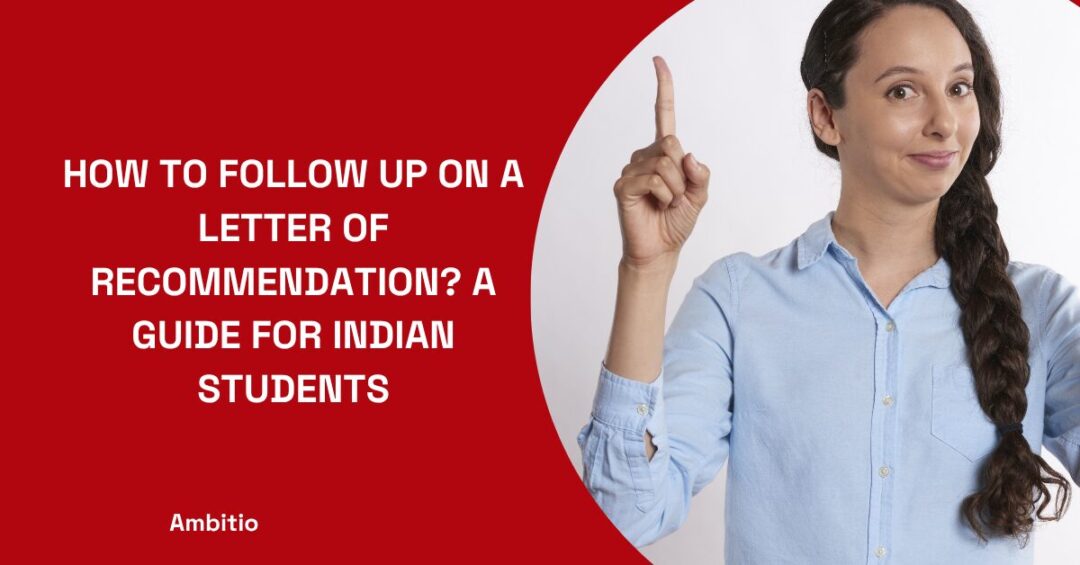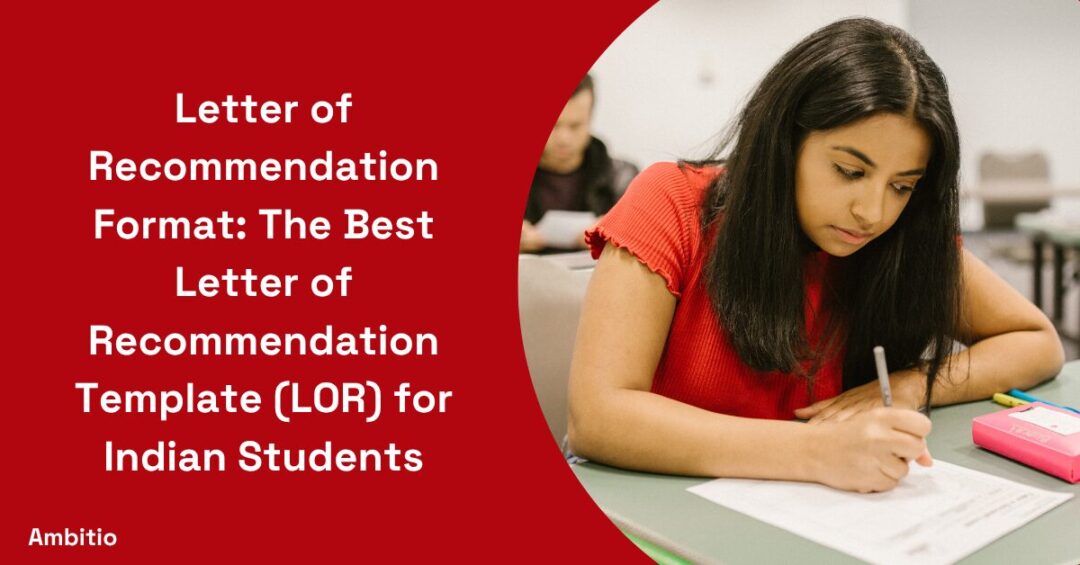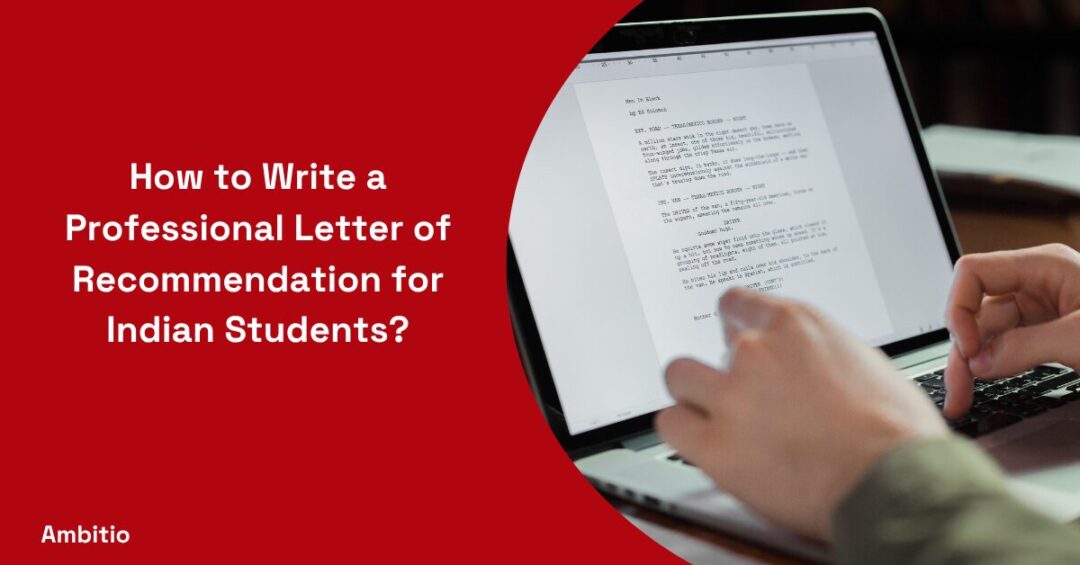13 July 2025
5 minutes read
Top 10 Universities And Graduate Programs For Indian Students That Dont Require Letters Of Recommendation
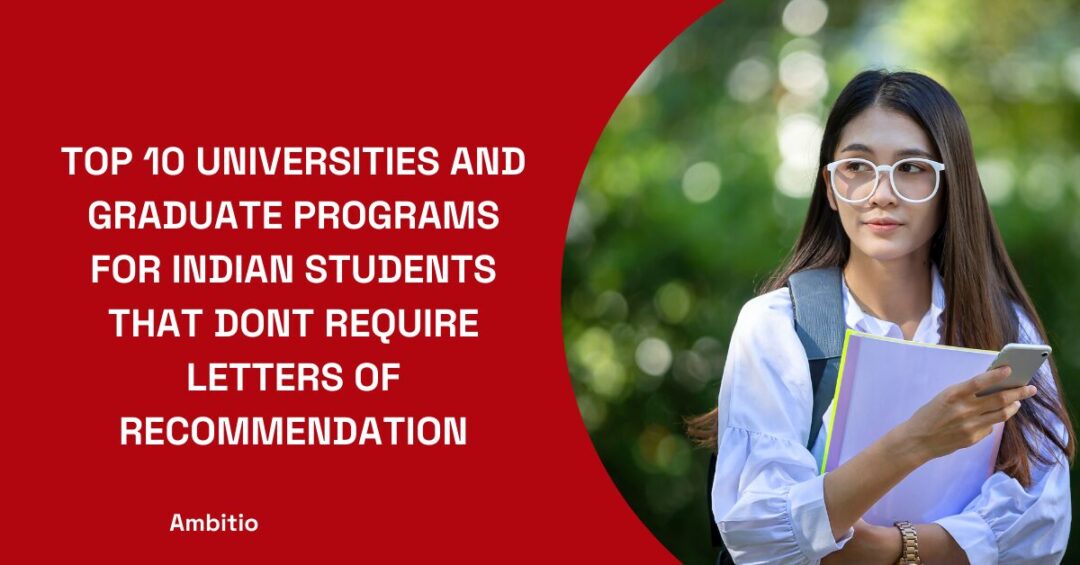
Key Takeaways
- Graduate programs that dont require letters of recommendation are becoming more common and focus more on merit and potential.
- Top universities still expect a strong transcript, test scores, and a clear purpose even without recommendation letters.
- Applicants must tailor their profile to fit each program instead of chasing rankings blindly.
87% of graduate programs still require letters of recommendation—as if your degree program, test scores, or actual work experience don’t say enough. It’s frustrating. You’ve nailed your undergraduate degree, built a strong profile, and you’re ready for grad school… but now you’re stuck begging for recommendation letters from professors who barely remember your name. This outdated admission requirement turns the graduate admission process into a chore.
Thankfully, more colleges and universities are getting real—offering graduate programs, including online degree programs, that accept students without letters of recommendation. Whether you’re applying with just a transcript, a personal statement, or solid standardized test scores, these grad programs see your merit—no reference letters needed.
10 Best Universities And Graduate Programs That Dont Ask For Letters Of Recommendation
If a letter from your manager determines your future more than your actual resume—maybe the system’s broken, not you.
Over 1 in 5 graduate students now apply to grad programs that don’t require letters of recommendation—and admissions offices aren’t collapsing because of it. The truth is, top-tier colleges and universities are slowly realizing that graduate admission should be about merit, not mailing endless reference letters.
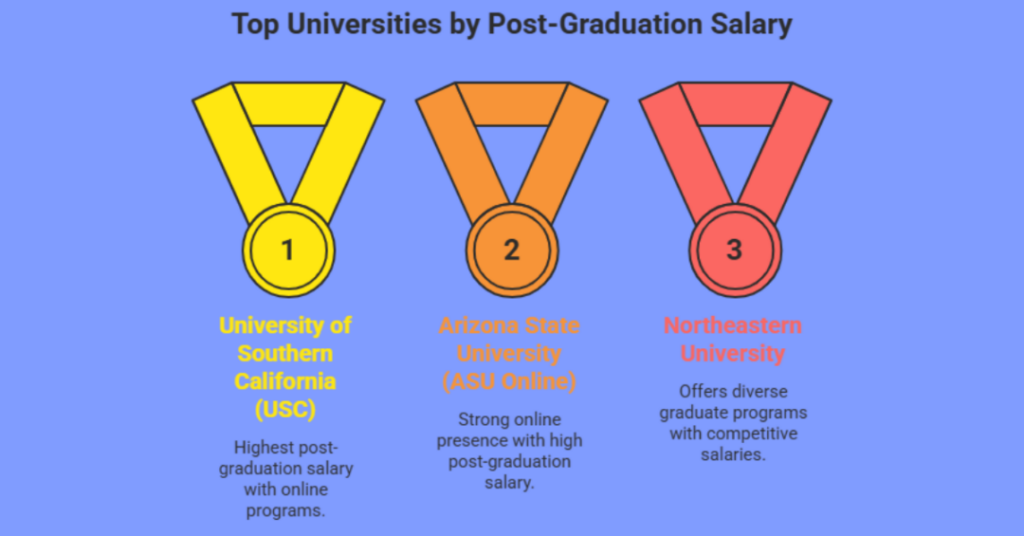
Here’s a curated list of some of the best universities in the USA offering graduate programs or online degree programs that skip the recommendation drama and focus on what really matters:
| Universities in USA | Graduate Programs | Average Salary (Post Graduation) | Average Tuition Fees (Annual) |
|---|---|---|---|
| Northeastern University | MS in Project Management, MS in Analytics | $82,000 | $25,000–$31,000 |
| University of Southern California (USC) – Online | MS in Computer Science (Online), MS in Applied Psychology | $98,000 | $38,000–$44,000 |
| Colorado State University – Global | MBA, MS in Organizational Leadership | $75,000 | $9,000–$12,000 |
| Liberty University | MS in Cybersecurity, MBA, M.Ed | $72,000 | $8,400–$10,800 |
| University of North Texas | MS in Data Science, MS in Criminal Justice | $76,000 | $14,500–$17,500 |
| California State University – Fullerton | MA in Communications, MS in Software Engineering | $78,000 | $13,000–$16,000 |
| Purdue University Global | MBA, MS in Finance, MS in IT | $80,000 | $11,000–$14,000 |
| University of Illinois | MS in Computer Science, MPH | $77,000 | $10,000–$13,000 |
| Arizona State University (ASU Online) | MS in Psychology, M.Ed, MS in Global Tech & Development | $85,000 | $11,500–$14,500 |
| Western Governors University (WGU) | MBA, MS in Data Analytics, MS in Nursing | $73,000 | $7,500–$9,000 |
What Else Top Universities Require To Get Admission In Graduate Programs?
Just because graduate schools that don’t require letters of recommendation exist doesn’t mean they hand out degrees like candy. While many colleges that don’t require letters offer flexible options, they still need solid proof that you can survive grad school without burning out in the first semester. So, even if you’re targeting schools that don’t require letters of recommendation, you’re still expected to bring your A-game in other areas.
A school without letters of recommendation might still ask you to show up with your GRE, TOEFL, or a killer SOP. Yes, you may not have to submit letters of recommendation or get letters of recommendation from past professors, but you’ll likely still need to prove that you’ve completed a bachelor’s degree, possess clear career goals, and can handle the academic rigor of graduate degree programs.
Most online programs may not require letters still assess your potential through other credentials. Here’s what most schools that don’t require LORs typically ask for instead:
| Requirement | Purpose in Graduate School Application |
|---|---|
| GRE (Graduate Record Examination) | Used by various graduate schools to evaluate verbal, quantitative, and analytical skills. |
| GMAT (Graduate Management Admission Test) | Often required by business-oriented master’s programs to assess analytical and quantitative skills. |
| TOEFL (Test of English as a Foreign Language) | For international students applying to schools and programs in English-speaking countries. |
| IELTS (International English Language Testing System) | An alternative to TOEFL accepted by most universities that don’t require letters for language proficiency. |
| Duolingo English Test | A flexible, online language test accepted by many online graduate and master’s degree program options. |
| SOP (Statement of Purpose) | Explains why you want to go to grad school and how the graduate certificate or master’s degree fits your goals. |
| ACT/SAT Scores | Not common for grad school, but a few programs at CSU or Rackham Graduate School may still review undergrad scores. |
| Resume or Work Experience | Especially for online graduate or graduate certificate programs that don’t require recommendation letters but want proof of industry knowledge. |
How To Improve Your Chances To Get Admission In Any Top University?
Apparently, top universities can’t decide whether they want thinkers, achievers, or just people with perfectly formatted PDFs. You’ve got the grades, the skills, maybe even the charisma—but somehow, your transcript alone isn’t enough. One school wants a “leadership narrative,” another one seems to only care if your referee used formal letterhead. And don’t even get started on the ones that require letters of recommendations like your professor’s praise in 12-point Times New Roman will suddenly validate your life choices.
1. Ditch The Fluff, Sharpen Your Story
Top universities aren’t just reading your transcript—they’re reading between the lines. They want to know why your GPA dropped in sophomore year and how you bounced back. Most applicants tell stories they think the committee wants to hear. The smart ones tell the truth, strategically. That difference? It gets you through the door.
2. Start Building Value Before You Apply
You don’t get into elite programs by being “almost impressive.” Whether or not they require letters of recommendations, schools will look for signals—published work, online portfolios, patents, high-impact internships. Don’t wait for the admission cycle to start before proving you’re worth betting on. Start showing value months (or even years) in advance.
3. Target Programs That Fit You—Not Just Ones With Big Names
Most people apply based on rankings, not alignment. The truth? You stand a much better chance when your profile fits the DNA of the program. Research the curriculum, outcomes, faculty interests—even if they require letters of recommendations, the closer the fit, the stronger your application will land.
4. Use Your Transcript As A Strategic Weapon
Your transcript isn’t just a list of grades—it’s a story. A top-heavy transcript? Talk about depth. A steady climb? Talk about resilience. Use your SOP or interview to interpret your transcript the way you want admissions officers to read it. Don’t let them guess. Tell them exactly what it shows about you.
5. Work Your Network—Even If It Feels Weird
You don’t need to know the dean personally—but a strong conversation with an alum, current student, or even faculty member can help you craft an application that hits the mark. Especially if the school does require letters of recommendations, having someone vouch with actual context can elevate you above the rest.
Conclusion
If a program doesn’t require letters of recommendations, it doesn’t mean it has no standards—it just means it’s choosing efficiency over tradition. Many universities now care more about your transcript, experience, and goals than about outdated gatekeeping methods. At the end of the day, every admission requirement should serve a purpose—and if a letter isn’t adding value, maybe it’s time to leave it out of the admission process altogether.
And remember: even if the grades aren’t perfect, a strong letter can make a student like Rohan unforgettable to the admissions committee. So, choose Ambitio, secure your future, and make your dreams come true.
FAQs
Do graduate programs exist that don’t require letters of recommendation?
Yes, many reputable graduate programs, especially in Europe and some U.S. universities, do not require letters of recommendation for admission
What admission materials do these programs typically require instead?
Common requirements include academic transcripts, statement of purpose (SOP), resume or CV, standardized test scores (like GRE, GMAT, IELTS, or TOEFL), and sometimes work experience
Are these programs trustworthy and accredited?
Yes, many such programs are offered by accredited and well-ranked universities, focusing on merit-based criteria like GPA and SOP rather than recommendation letters
Which popular fields offer graduate programs without LORs?
Fields include Computer Science, Business Analytics, Data Science, Artificial Intelligence, Economics, Sustainable Energy, Human-Computer Interaction, and more
Can international students apply to these programs?
Yes, many programs that don’t require LORs accept international applicants, often requiring proof of English proficiency such as IELTS or TOEFL scores
Why do some universities waive the letter of recommendation requirement?
To reduce bias, improve accessibility, and emphasize academic and professional achievements over subjective evaluations

You can study at top universities worldwide!
Get expert tips and tricks to get into top universities with a free expert session.
Book Your Free 30-Minute Session Now! Book a call now















